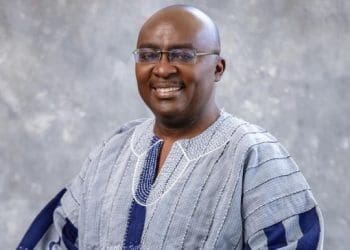Cabinet has given its approval to the 24-Hour Authority Bill for submission to Parliament, paving the way for the institutionalization of Ghana’s flagship 24-Hour Economy Initiative, President John Dramani Mahama announced on Wednesday.
Speaking at a wide-ranging media encounter at the Jubilee House in Accra, the president said the bill would provide the legal and operational framework to drive the transition toward a round-the-clock economy aimed at boosting productivity, creating jobs, and modernising public service delivery.
Institutions already leading the way
According to President Mahama, some critical state institutions have already begun implementing 24-hour operations ahead of the bill’s passage.
The Ghana Publishing Company, he said, has transitioned to full 24-hour operations.
The Passport Office and Ghana’s foreign missions abroad have rolled out round-the-clock services to expedite passport issuance and improve service delivery for citizens.
Both the Tema and Takoradi ports, key trade gateways, now operate 24 hours daily to enhance efficiency, ease congestion, and facilitate smoother import and export processes.
The president explained that to safeguard the new system, government had established a dedicated 24-Hour Economy Policy Secretariat at the Ministry of Interior.
The Secretariat will provide continuous security and coordination to ensure that businesses and public services operating under the initiative are well-protected.
“These bold steps,” Mr. Mahama said, “signal a clear national commitment to building a resilient, inclusive, and job-rich economy.”
Economic stability gains ground
Turning to the state of the economy, President Mahama highlighted what he described as significant progress in stabilising prices and easing the cost of living for households.
He noted that inflation had dropped from 23.8% in December 2024 to 11.5 per cent in July 2025, the lowest level since December 2021.
“But this isn’t just about numbers, it’s about being felt across markets and homes,” he stressed.
“The prices of key commodities are falling, and for the first time in years, brands and businesses are actively advertising their price reductions, a sign that recovery is not only real but tangible.”
According to the president, official trade associations had submitted data to Parliament indicating that prices of up to 4,500 different items on the market had been reduced in recent months.
“It’s about making the Ghanaian household feel the impact in their everyday lives. As the popular saying goes, the real economy is not in statistics but in the pockets of the people,” Mr. Mahama added.
Investor confidence rebounds
The president also pointed to renewed global investor confidence in Ghana’s recovery path.
He disclosed that government had remained current with bond repayment obligations, and in response, international credit rating agency S&P Global Ratings had upgraded Ghana’s country credit risk from junk to B- with a stable outlook.
“This is a significant endorsement of Ghana’s economic recovery efforts and reflects positive momentum in our management of the economy,” Mahama said.
24-Hour economy as a game-changer
Reiterating the centrality of the 24-Hour Economy Initiative to his government’s vision, President Mahama described it as one of the most transformative job-creation strategies under implementation.
“This initiative is not just about keeping the lights on longer. It is about unlocking new shifts of productivity, widening access to jobs, and building a resilient, inclusive economy that works for all,” he explained.
He said the policy was designed to support micro, small and medium enterprises (MSMEs), modernise agriculture, and expand employment opportunities across strategic sectors.
By extending productive hours, he added, Ghana could generate new income streams, reduce unemployment, and increase competitiveness on the regional and global stage.
The road ahead
President Mahama emphasised that while much work remained to be done, the combined effects of stabilising inflation, restored investor confidence, and the bold rollout of the 24-hour economy showed that Ghana was on a firm path to recovery.
“Our focus now is to sustain the momentum of growth, expand productivity, and ensure that the gains are felt by every Ghanaian household,” he concluded.












